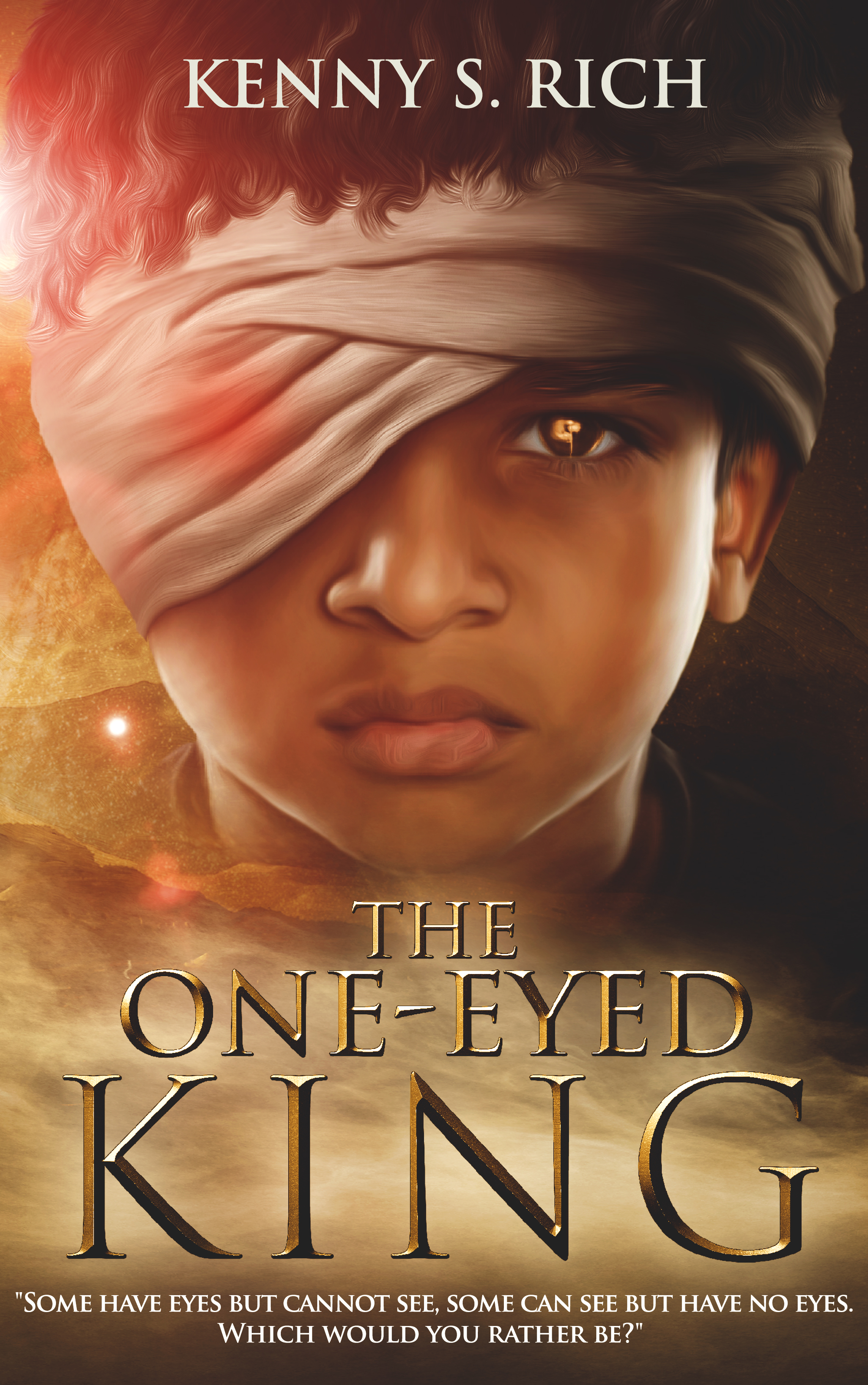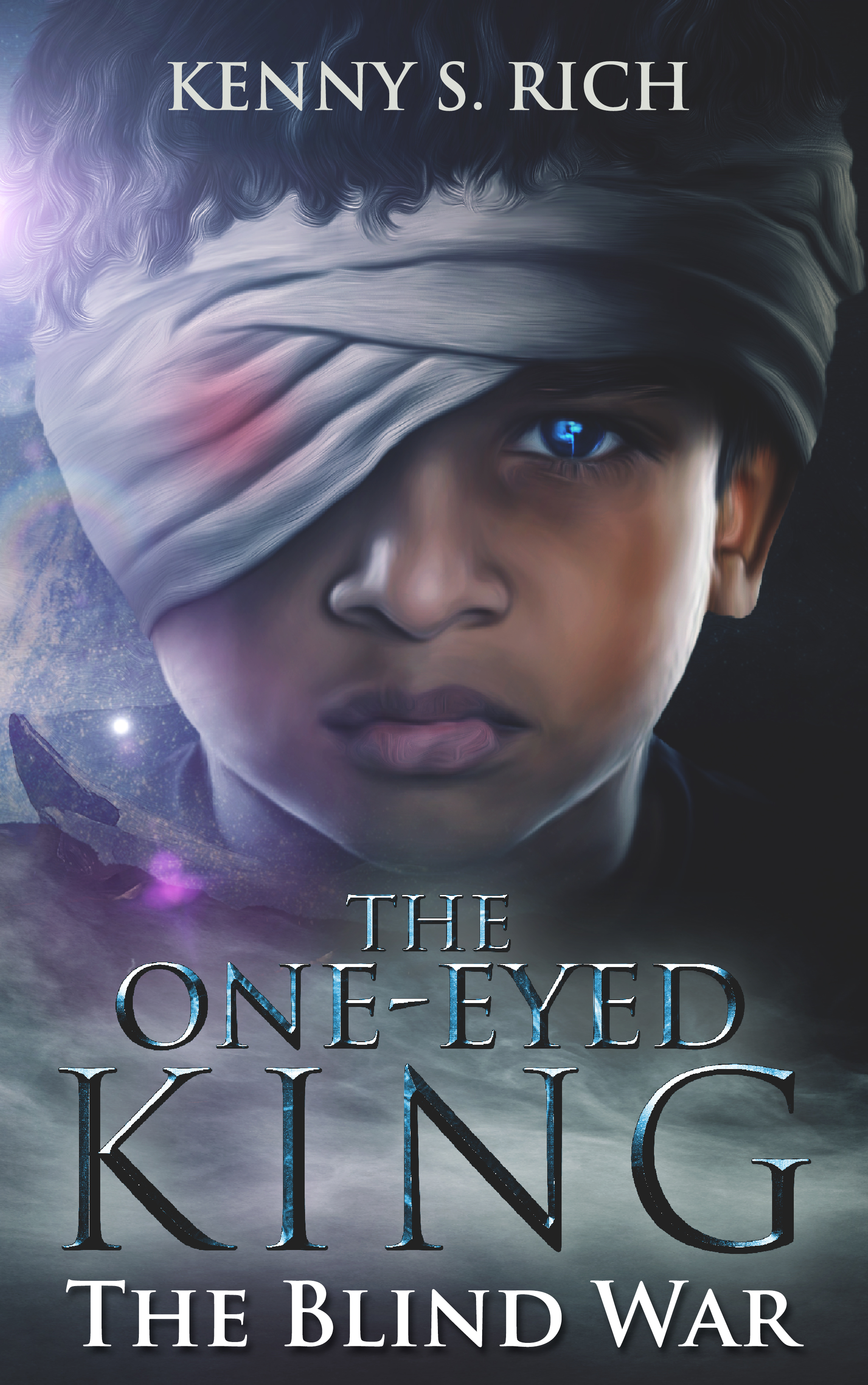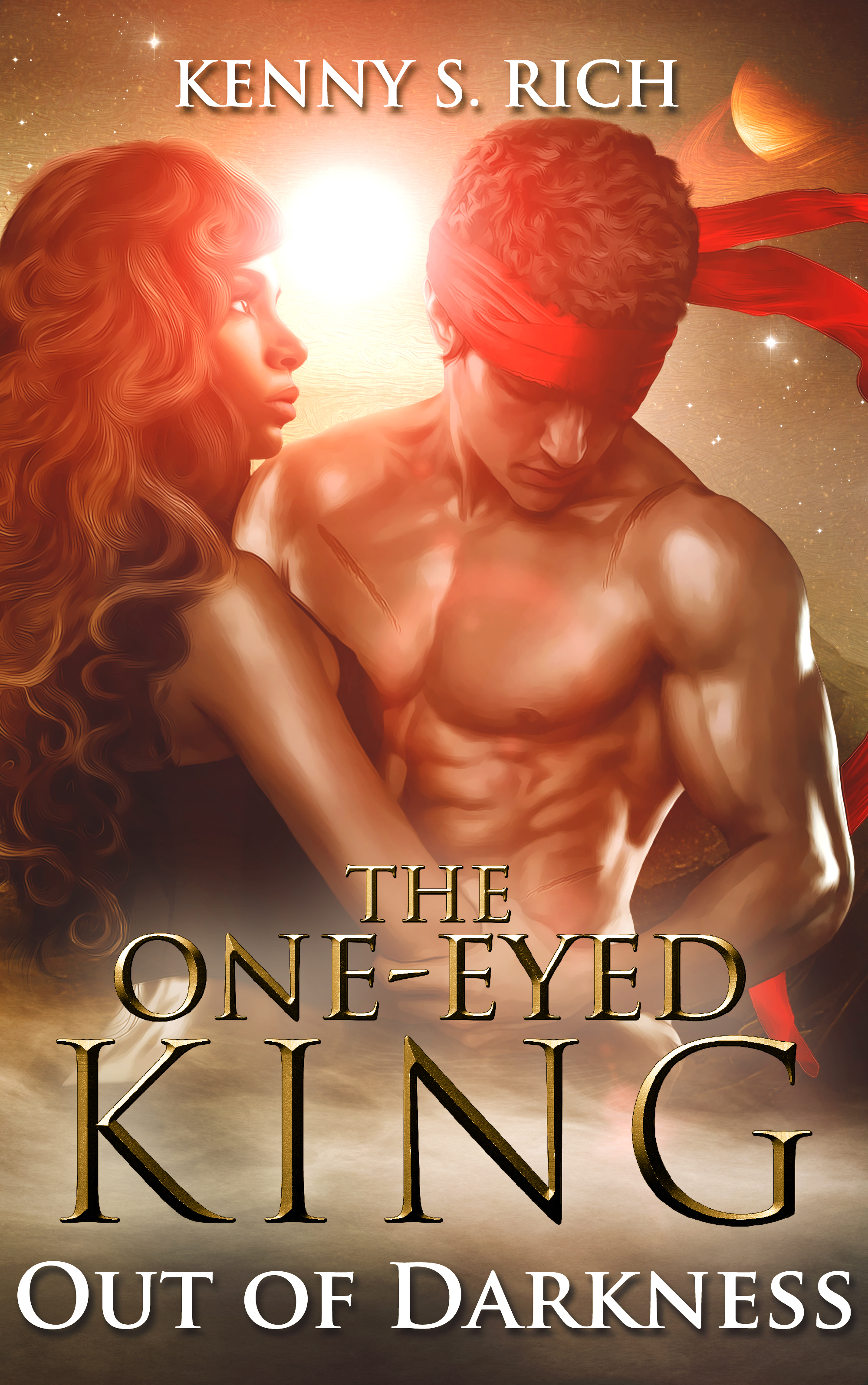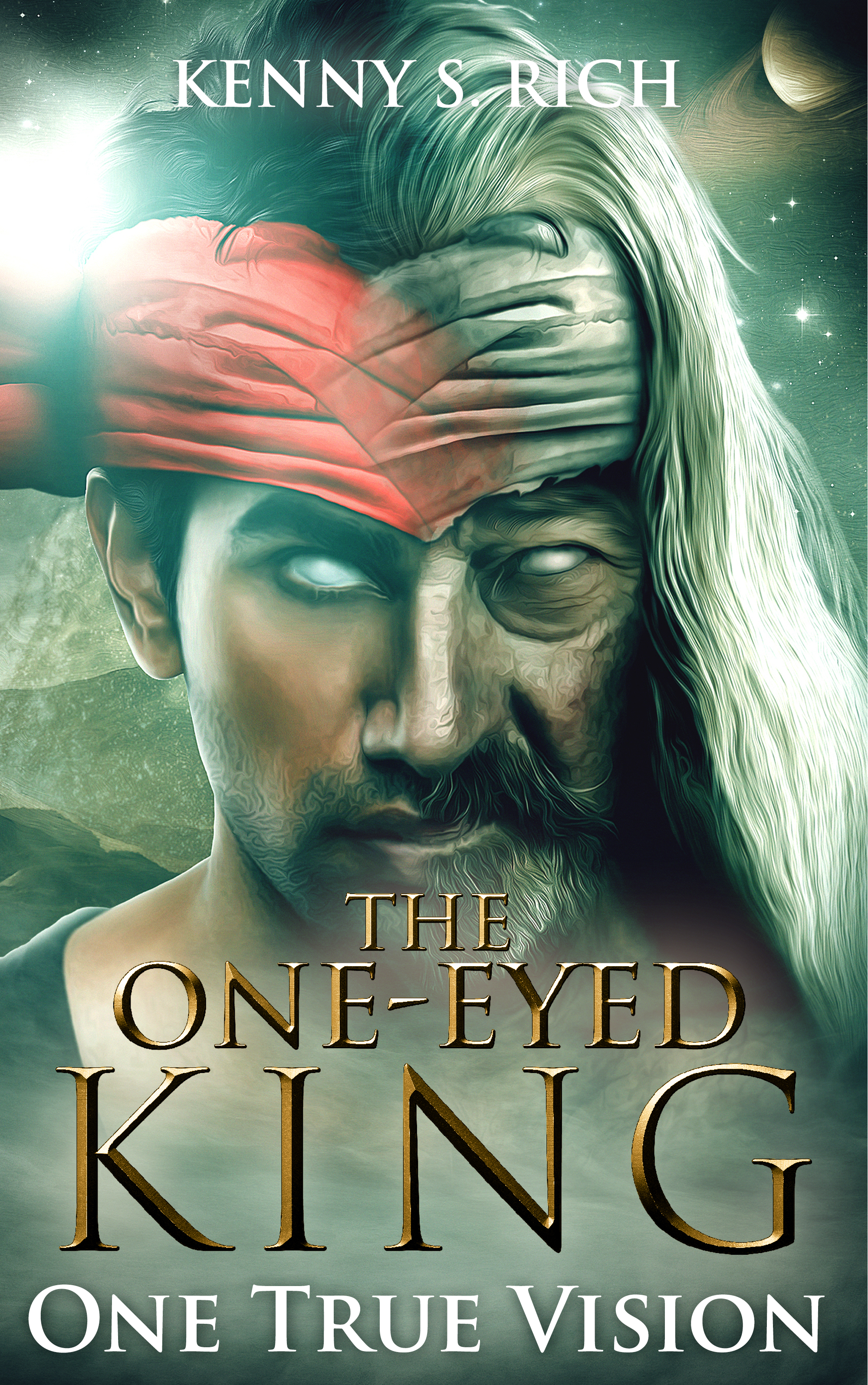Since the advent of Marvel Studios' and Disney’s Black Panther, which took Hollywood and the world alike by storm with its record-shattering blockbuster performance at the box office and glowing critical acclaim, there appears to be a paradigm shift in the film and creative writing (literary) industries in America. Specifically, there is a growing cognizance of the mass appeal of original stories that not only feature black or minority heroes, but also have a black or minority creator.
However, to be fair, this seeming paradigm shift began before Black Panther’s meteoric success as shows such as ABC's Blackish and Marvel/Netflix’s Luke Cage also were deemed successful, both critically and commercially, primarily for their “unapologetic blackness.” Which brings me to this point in time and a story I strongly feel Hollywood and the world alike would embrace a la Black Panther, provided the right filmmaking visionaries—producers, directors, actors, writers, et al. championed its feature film adaption. This work I am referring to is a futuristic science fiction fantasy book series called The One-Eyed King.
The One-Eyed King is the story of a young Ethiopian orphan boy who is destined to become something he isn’t sure he wants to be at first. Iori (eye-oh-ree) is a reluctant hero in a larger than life tale—the One-Eyed King of the proverbial Land of the Blind, except in this fictional world, it is no myth but an actual place, the eighth wonder of the world. As the story progresses, Iori will find himself caught in the middle of two worlds that aren’t trusting of each other. One one hand, he is beholden to the gifted blind people who live in the Land of the Blind unbeknownst to the rest of the world, and on the other, uncertain about the rest of us who make up “normal people” or the Seeing World as we are called in this series.
As Iori matures over his 4-Book adventure, he will come to discover and then master a host of innate superpowers including heightened senses that will evolve into menacing powers. These include an amplified sense of touch, taste, smell, hearing, super speed and agility, super strength and endurance, telepathy, and even levitation and flight, putting him in the pantheon of some of fiction’s most potent and impressionable superheroes. However, while Iori possesses powers in common with these legacy superheroes, he is somewhat unique, with his closest superhero parallel being Marvel’s Daredevil, although, in comparison, Iori would be Daredevil, on steroids. His story takes place at the intersection of Harry Potter meets X-Men, with his position as king and noble heart reminiscent of Marvel’s King T’Challa, the Black Panther.
Regarding the origin of this concept, I wrote this novel because I was fascinated with a longstanding quote I often heard as a child: “In the Land of the Blind, the one-eyed man is king.” I easily understood the meaning of the line in a metaphorical sense but dared to wonder, “What if there was an actual Land of the Blind in a literal sense? What would that look like? Who would live there and what would this one-eyed king really be like?” So I set my wild imagination to work and, several years and approximately 300,000 words later, what I believe is a uniquely compelling story suited for the big screen, was born.
Unfortunately, as I would try to convince the gatekeepers in the publishing industry of the merits of Iori’s story back in its manuscript phase, I would get no after no after no. I must have gotten at least 100 no’s to my query letters, even after researching and applying all the best practices I could gather from literary journals and resources such as Writers Digest. Not a single agent requested my manuscript—they outright rejected the concept itself. Then one day, I got a maybe; now let’s just say I’ve never been happier about 50-50 odds in my entire life. But, as you might imagine, when I would follow up with that one literary agent I’d spent weeks dreaming would end up being my fairy god-literary agent, her "maybe" had diminished to a stone cold no. So there I was, mystified, baffled, stunned, disheartened, discouraged, you name it. I can’t recall if I shed grown man tears during that dispiriting ordeal but, knowing how emotional and passion-driven I am, it’s quite likely.
Finding myself at the crossroads of giving up my dream to see this story published as a New York Times bestseller and adapted into a blockbuster Hollywood tentpole franchise, and taking the often incognito and constant uphill battle route of self-publishing, I decided to put Iori’s fate in my own hands and self-publish. I was hopeful, to say the least, but I realize now that I was a bit naive. With the absence of any semblance of a marketing budget backing my book promotion efforts, The One-Eyed King was published in 2015. Unsurprisingly, it gathered negligible commercial success, in spite of glowing Amazon reviews from the few readers in my network and others who’d given the book a chance. I was disappointed, of course, but this latest tribulation didn't leave me dismayed, having already been through the shadow of the valley of literary agent rejection too many times to count. So, between 2015 and 2017, I would proceed to complete Iori’s story over the four books in The One-Eyed King series while self-promoting the books to the best of my limited ability and scarce marketing dollars.
Sometime in 2015, I took yet another chance and decided to pursue the film adaptation angle, in the hopes that whereas Iori’s story seemed to have hit a dead end as a book, it might fare better as a film. So I invested about $5,000 on a Creative Treatment (a 10-15 page summary of what a book would look like on the big screen), which was authored by a team consisting of a Hollywood producer and screenwriter with reasonably impressive credits to their names. Once more, I was elated beyond my wildest imaginations... But—get the pattern here? There’s always been a but—in spite of my delight and genuine awe over the fascinating vision for the cinematic version of The One-Eyed King these gentlemen delivered me, I still had a mountain of challenges to contend with. For starters, it was only a Treatment, not an entire script as I couldn’t afford the tens to hundreds of thousands that would require. And the media company that had been responsible for connecting me with the producer and screenwriter had no luck getting the project optioned by a Hollywood producer, a struggle that persists to this day.
Nevertheless, more than ever before, in 2018 I find myself encouraged about the prospect of realizing my biggest dream to see The One-Eyed King finally begin its journey toward being adapted into a Hollywood feature film in earnest. Since I published this epic, action-packed young adult adventure, there has been much proof of concept in other works Hollywood has supported and thrown its weight behind. Today, as I relive the glorious spectacle that was Black Panther and appreciate the masterpiece that was The Avengers: Infinity War, I realize that the superhero genre indeed is endearing to audiences far and wide, and isn’t going away anytime soon. Moreover, and perhaps more importantly, the cultural significance of Black Panther may come to be the catalyst that finally casts eyes on Iori, the One-Eyed King of the Land of the Blind, and the mysterious worlds around him that so vividly depicts the power of mind over matter.
That said, until such a monumental day when I get that fateful phone call or email from a literary agent, publisher, or Hollywood mover and shaker, ladies, and gentlemen, I give you Book 1 of The One-Eyed King series, completely free. I also offer you the opportunity to view the Creative Treatment derived from the original manuscript. I only ask this of you in return—that you read them, of course. And, if you like what you read, then, by all means, leave me a fair review on the book’s Amazon page. I just want Iori’s story told, if not seen, far and wide, so that its relatable, profound narratives and lessons about the human condition can be of value to people all over the world. After all, the series explores the ever-present dichotomy between good and evil and the gray areas in between these age-old concepts that govern our sense of morality and purpose as human beings.
Finally, I pray that with your help sharing this message about an unlikely hero in a unique adventure as a young, black, blind orphan boy with unique abilities, we will continue to shift the paradigm in Hollywood to further embrace the creative works of black and other minority authors. Moreover, I hope that it will help foster the kind of representation that turns the "disabled" into enabled and empowered Daredevils, young T’Challas into Black Panthers, and young Ioris into the One-Eyed King of the Land of the Blind.
Sincerely,
Kenneth Fomunung a.k.a. Kenny S. Rich





